As a gardener I do find it mildly hilarious that our florist shops, when they send out a bunch of "native" flowers, often don't include a single Australian native bloom in their beautifully arranged displays. Poor things, their lovely bunches of proteas, leptospermums and other South African belles do resemble their Australian native cousins, but their idea of what constitutes a "native" flower isn't one of floristry's strong points. You do occasionally see the odd Aussie kangaroo paw in there, maybe a banksia or two, but usually the "native" flower bunches created by our florists are not especially Australian.
If you think that's bad, imagine if someone asked for "natives" and they sent orchids! Well, ironically enough there's a chance, if the orchids were tiny little things, that they might be Aussie native flowers. But our florists just aren't going to go there anytime soon, nor are their customers.
All this, of course, is just my way of introducing you to the fact that our Australian native orchids are blooming right on schedule once more, in early spring. These little gems are as native to Australia as kangaroos, grevilleas, emus and waratahs, although they're not what people think of when you talk about "native flowers", of course.
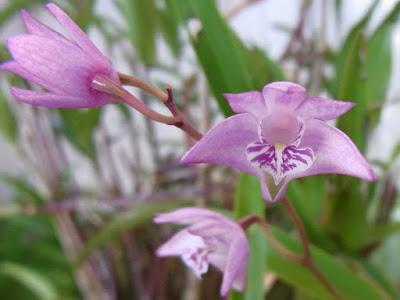
Like most amateur backyard orchid dabblers, I don't have a clue
as to what this orchid's name or variety is. I just bought it at
a garden show several years ago, and it has been flowering
and multiplying with a minimum of care since then.
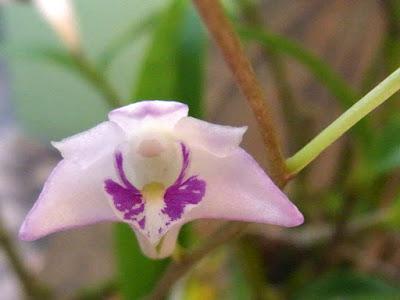
Same deal with this person. Seven years of excellence! To
give you an idea of their size, this one is about an inch wide.
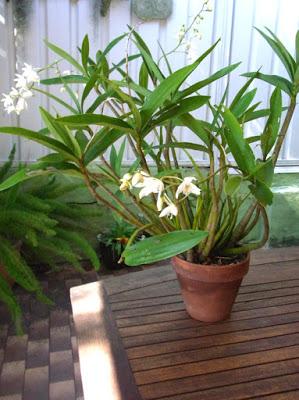
I'm afraid that the plants are starting to get too big
for their pots. The flower show this year isn't
quite as prolific as in previous years. Usually that
is the signal that it's time to divide and repot
the plants after flowering finishes. I'll do that
later on in spring.
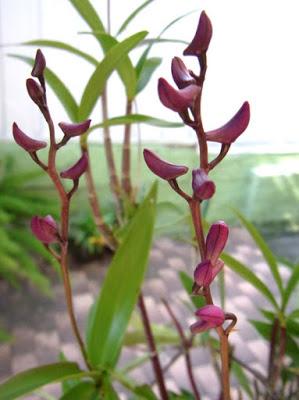
Meanwhile, there's more than just flowers to
admire. There's flower bud towers, too.
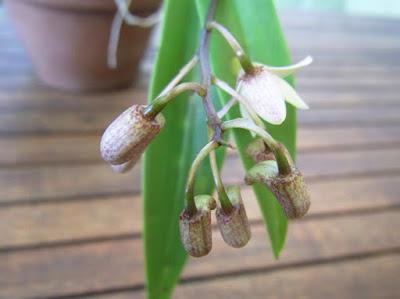
And each cultivar has its own flower bud colourings, and some
toss spotty patterns into the mix as well.
As for growing them, they're just like our cymbidium orchids: tough and easy-care. They get a bit of sunshine each day, but spend most of their day enjoying either some dappled light or bouts of full shade. I feed them with liquid orchid food once a month (or when I remember to...), and give them a drink of water if it has been dry for a week or so. Mostly, Sydney's natural rainfall waters them well for me, as these are all outdoor plants.
If you are an admirer of Australian plants in general but don't have enough sunshine to grow the bigger sun-loving natives, a few pots of these beautiful little native orchids will fit into that semi-shaded spot very nicely indeed and give you something little yet lovely to admire every spring.
